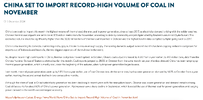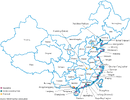Dona Ferentes
zusammengehörigkeitsgefühl
- Joined
- 11 January 2016
- Posts
- 19,780
- Reactions
- 27,078
interesting . A thousand brainfarts on ASF , and I'm selected.Interesting thread. Well done @Dona Ferentes for it's rejuvenation, in a time when energy security and material supplies might be critical.
But, it's also been looked at in other threads, not sure what the direct point is here.
Is it getting revenue from coal sales, or energy security?
I'm leaning towards the benefit to our economy verses giving material to China who are intent on destroying us.
Thread title .. China, coal, Australia.
Content .... China, coal, Australia.
!Please explain?





